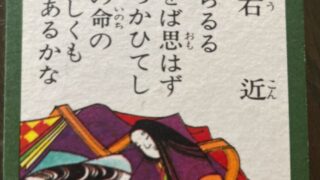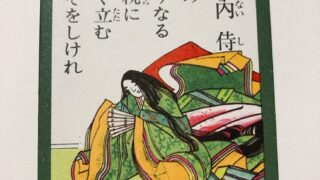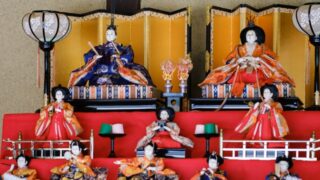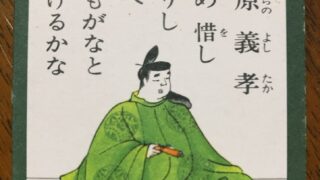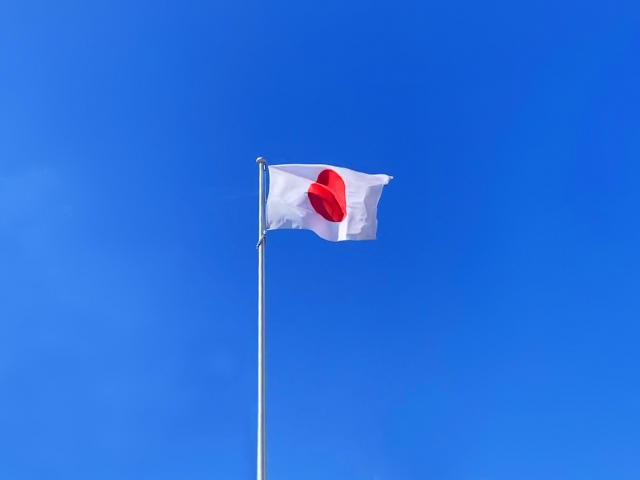2月23日は天皇陛下の誕生日です。祝日です。今回は、天皇に関する言葉を少し説明します。
February 23 is the Emperor’s birthday. This day is a national holiday. This time, I will explain a few words about the Emperor
| 天皇誕生日 | てんのうたんじょうび | the Emperor’s birthday |
| 祝日 | しゅくじつ | national holiday |
天皇陛下・てんのうへいか
現在の天皇陛下の名前は「徳仁(なるひと)」です。
天皇には姓がありません。名前をお持ちですが、一般的には「天皇陛下」と呼ばれます。
現在の天皇陛下は、2019年5月1日にご即位になりました。その時、日本のカレンダーが「平成」から「令和」になりました。
天皇陛下は令和6年(2024年)2月23日、64歳の誕生日を迎えられました。
The current Emperor’s name is Naruhito.
The Emperor does not have a family name. He has a name but is generally called as “His Majesty the Emperor.”
The current Emperor came to the throne on May 1, 2019. At that time, the Japanese calendar changed from “Heisei” to “Reiwa.”
His Majesty the Emperor celebrated his 64th birthday on February 23, 2024.
| 天皇陛下 | てんのうへいか | His Majesty the Emperor |
| 姓 | せい | family name |
| ご即位になる | ごそくいになる | come to the throne |
日本国憲法・にほんこくけんぽう・The Constitution of Japan
日本国憲法により、天皇の地位は、次のように決められています。
The Constitution of Japan defines the position of the Emperor as follows.
天皇は、日本国の象徴であり日本国民統合の象徴であって、この地位は、主権の存する日本国民の総意に基づく。
The Emperor is the symbol of Japan and of the unity of the Japanese people, and this position is based on the consensus of the Japanese people, over whom sovereignty resides.
簡単に言うと「天皇は日本の象徴です。国民がひとつにまとまっていることを象徴しています。天皇の地位は、日本国民が認めています。」という意味です。
まだ少し難しいですね。「象徴」は英語で “symbol” です。「天皇は日本の象徴として存在しますが、政治はしません。」ということです。
今の天皇は、法律や政府で決定されたことに基づいた儀式を行います。海外からの重要な来客をお迎えすることも、天皇の仕事のひとつです。
Simply put, “The Emperor is the symbol of Japan. He symbolizes the unity of the people as one. The people of Japan recognize the position of the Emperor.”
It is still a little difficult. The word “しょうちょう” is “symbol” in English. “The Emperor exists as a symbol of Japan, but does not engage in politics.” This is what the Constitution says.
The current emperor performs ceremonies based on laws and government decisions. Welcoming important guests from abroad is also part of the Emperor’s job.
| 象徴 | しょうちょう | symbol |
| 地位 | ちい | position |
| 認める | みとめる | recognize |
| 政治 | せいじ | politics |
| 政府 | せいふ | government |
| 決定する | けっていする | decide |
| 儀式 | ぎしき | ceremony, ritual |
物語
物語の上では、天皇は太陽の神アマテラスの子孫であるとされています。この物語は8世紀前半に編集された「古事記」、「日本書紀」に書かれています。
アマテラスの子孫として、今でも天皇は、国と国民が平和であること、農作物が豊かに実ることを祈っています。
In the Japanese narrative, the Emperor is said to be a descendant of Amaterasu, the Sun god. This story is written in the ”Kojiki” and ”Nihonshoki,” editted in the first half of the 8th century.
As a descendant of Amaterasu, the Emperor still prays for peace for the country and its people, and for crops to grow in abundance.
| 物語 | ものがたり | story, narrative |
| 子孫 | しそん | decendant |
| 編集する | へんしゅうする | edit |
| 農作物 | のうさくもつ | crops |
| 豊かに実る | ゆたかにみのる | grow in abundance |
| 祈る | いのる | pray |
私は、ただ国民のために祈るという天皇の存在が、尊いと思っています。そして、1000年以上にわたってこの物語が共有されてきたことに、大きな価値があると思っています。
I believe that the Emperor’s existence for just praying for the people is precious. Besides, I think there is great value in the fact that this story has been shared for over 1,000 years.
天皇のことをおおまかに説明しましたが、いかがでしたか?もっと知りたくなったら、以下のウェブサイトを見てください。皇室について、英語で説明しています。
I hope I have given you a rough idea of what the emperor is all about. If you want to know more, please visit the following websites, which explain the Imperial Family in English.
| 存在 | そんざい | existance |
| 尊い | とうとい | precious |
| 共有する | きょうゆうする | share |
| ~に価値がある | ~にかちがある | there is value in ~ |
| おおまかに | roughly | |
| 皇室 | こうしつ | Imperial family |

